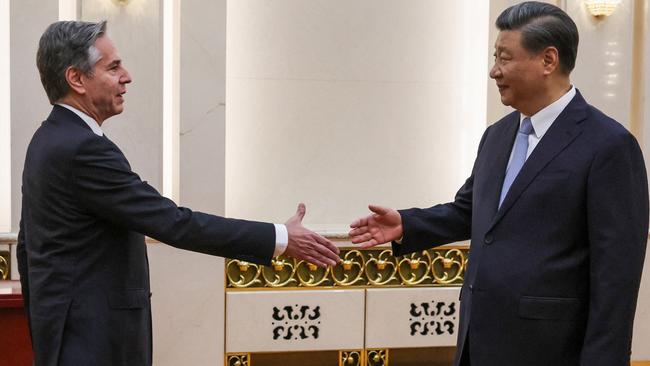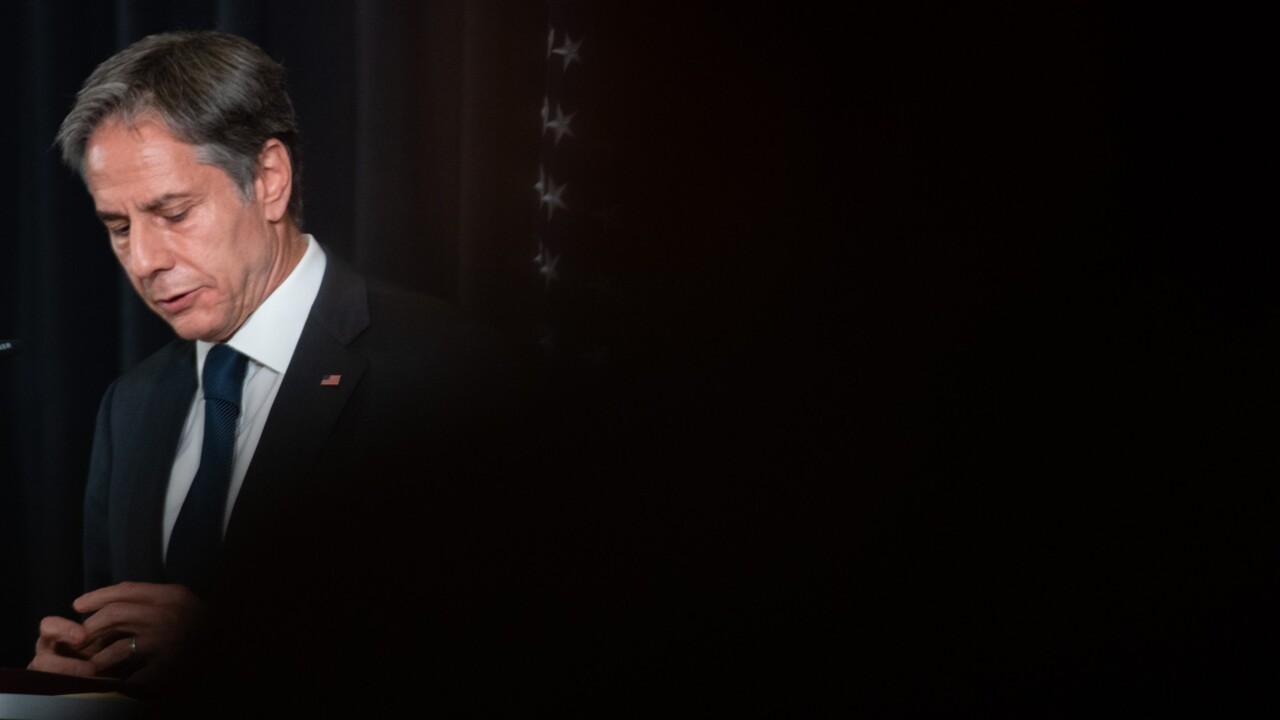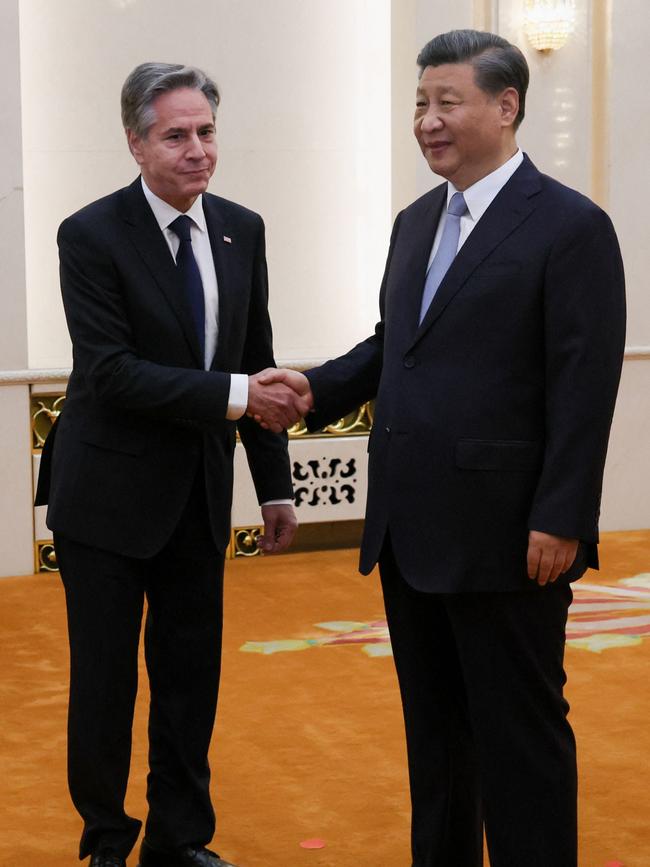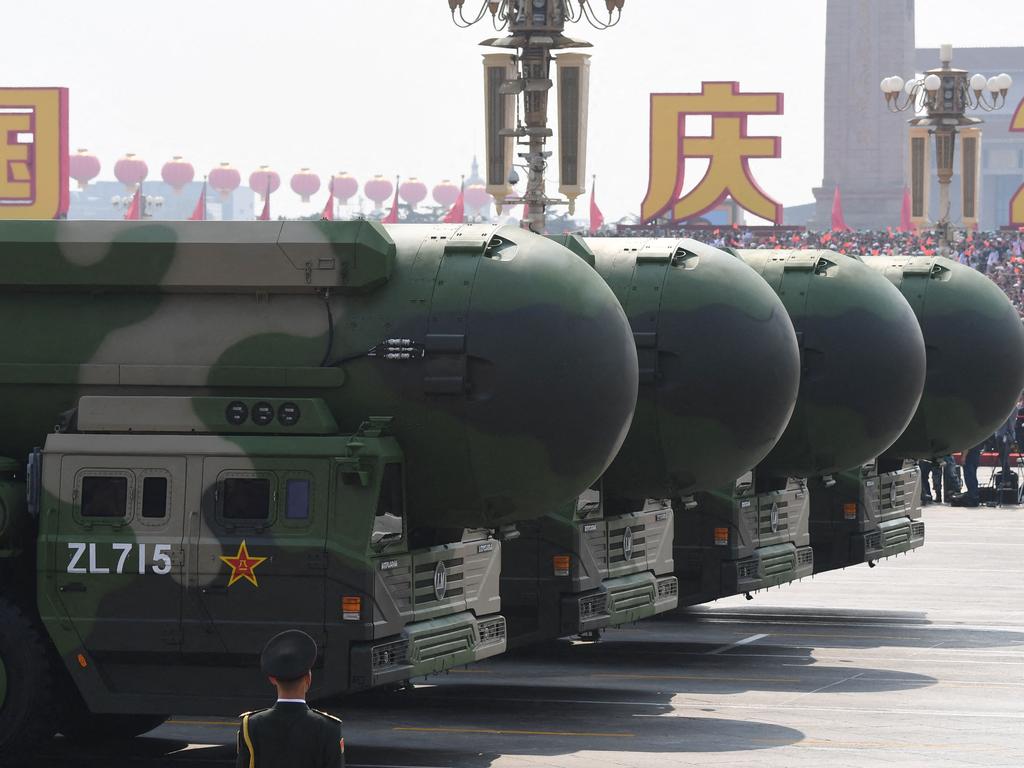Xi Jinping meets Antony Blinken as US, China resume high-level engagement
No apparent breakthroughs occurred on the range of contentious issues that sent ties plummeting, from US support for Taiwan to Beijing’s close relations with Moscow.

China and the US took steps to halt the spiral in relations, with Secretary of State Antony Blinken meeting Chinese leader Xi Jinping, though the two powers may have trouble keeping their global rivalry from swamping the tentative rapprochement.
During two days of meetings in Beijing, Blinken and senior Chinese foreign policy officials agreed to more high-level talks, continuing a thaw after months of near-frozen contacts. They also promised to find common ground on increasing flights between the two countries and combating the flow of fentanyl into the US.
Xi blessed the fledgling momentum in ties, granting Blinken a much-anticipated audience on Monday and urging the US diplomat to “make more positive contributions to stabilise U.S.-China relations.”
No apparent breakthroughs occurred on the range of contentious issues that have sent ties plummeting, from US support for Taiwan and restrictions on technology exports to China to Beijing’s close relations with Moscow. Blinken said he raised concerns about Chinese intelligence activities in Cuba. A key goal of the Biden administration – establishing a military communication channel between the countries to address frequent incidents around Taiwan – also didn’t materialise.

“Progress is hard: It takes time. It’s not the product of one visit,” Mr. Blinken told reporters in Beijing after meeting Xi for 35 minutes at the Great Hall of the People.
The positive if muted tone after months of acrimony was something the Biden administration sought, hoping better communications will allow the US and China to keep disagreements from veering into outright conflict.
“Both sides clearly used the visit to help stabilise the relationship, which has been wobbling badly,” said Daniel Russel, a former senior State Department official now with the Asia Society Policy Institute. “At the same time, they each conveyed their resolve to defend what each perceives as its national security, economic, and ‘core’ interests.” Key incentives for China in engaging with the US is the Chinese economy’s shaky performance and the US’s hosting of an Asia-Pacific summit this November. The Chinese side is angling for a pomp-filled meeting between Xi and President Biden, according to Chinese and US officials.
Keeping détente on track, however, is likely to prove challenging, those officials said. They cite China’s concerns about an expected Biden administration order limiting US overseas investment in semiconductors and several other advanced technologies.

Media reports about stepped-up Chinese eavesdropping and other activities in Cuba are adding further friction. Taiwan’s vice president, who is running to become president of the self-ruled island nation claimed by Beijing, is also expected to stop in the US in coming months, testing Beijing’s tolerance.
Blinken’s China visit was the first by a US cabinet member in more than four years. His trip was originally scheduled for February but was then postponed after the US detected and then shot down a high-altitude balloon that Washington says was used for spying over North America.
Recriminations over the balloon and US accusations that Beijing was considering providing Russia lethal assistance in its war with Ukraine sent ties plummeting, resuming a downward spiral that followed a visit last year by then-House Speaker Nancy Pelosi to Taiwan.
Beijing froze most high-level and many working level contacts in response. Among the talks halted were those on how to regulate chemicals made in China that are used for making fentanyl in Mexico and other countries.
Blinken said Monday after his meetings that the US and China would create a new working group to combat the problem, but didn’t immediately provide details.
China has been careful in setting the stage for the meeting between Xi and Blinken, according to Chinese officials familiar with the arrangements. Xi met with Microsoft co-founder Bill Gates on Friday to ensure that his first public meeting with an American this year wasn’t with Blinken — who is seen in Beijing as an antagonist — but with a friendlier face, one of the Chinese officials said. Xi told Gates that he was “the first American friend I met in Beijing this year.” In response to the idea that the Gates meeting was purposely arranged ahead of Blinken’s, China’s Foreign Ministry said it “is purely speculative.” The Communist Party’s top foreign policy official, Wang Yi, told Blinken in a three-hour meeting Monday that Beijing wanted to “reverse the downward spiral” in relations with the US. Still, he put the onus on Washington to repair ties, according to the Chinese Foreign Ministry’s report of the encounter.
“The root cause of the trough in Sino-US relations is that the US side holds an incorrect perception of China, which leads to incorrect policies toward China,” Wang said, according to the ministry.
Barring further setbacks, other senior US officials — including Treasury Secretary Janet Yellen and climate envoy John Kerry — are expected to visit Beijing in the coming months. Blinken invited Chinese Foreign Minister Qin Gang to visit Washington as a reciprocal step to Blinken’s Beijing trip. In theory, the meeting between Xi and Blinken will pave the way for Qin, a former ambassador to Washington, to meet Biden on a future visit.
A restoration of high-level bilateral interactions would also improve the prospects that Xi meets with Biden in the fall, either at a Group of 20 summit in India or at the planned gathering of Asia-Pacific leaders in San Francisco.
“Blinken’s visit to China is after all a positive step in the right direction of reducing tension and managing the risks in Sino-US relations,” said Victor Gao, an international-relations expert at China’s Soochow University. “The fact that he had a meeting with President Xi Jinping indicates that the heads of state of China and the US are serious about having a face-to-face meeting before the end of the year, which may reset the overall directions of the bilateral relations.” A glaring gap in the reviving contacts has been between top military officials. Defence Secretary Lloyd Austin attended an annual international conference in Singapore this month but was rebuffed in trying to arrange a formal meeting with his Chinese counterpart, who is under US sanctions.
Blinken, in his comments to reporters, cited the need for military contacts and noted China’s military activities near Taiwan in proximity to US forces.
“There’s been rising concern about some of the provocative actions that China has taken — I also made that very clear,” Blinken said, declining to say whether he brought the issue up with Xi or just in other meetings with Chinese officials.
Beijing previously heaped scepticism on US calls for improved communication, pointing to what it said were repeated American attempts to undermine Chinese core interests. But Chinese officials have been positive about the Blinken visit so far, saying it is an opportunity to maintain diplomatic equilibrium as tensions rise between Beijing and Washington.
The Chinese officials said they understand the US is pursuing a dual-pronged strategy, pushing for open dialogue with high-ranking Chinese officials even as it maintains pressure on Beijing with trade sanctions and spying allegations.
“It’s through these high-level discussions that both nations can effectively articulate their viewpoints,” one of them said.
Blinken said he also met with members of the US business community on Monday, many of whom expressed a desire to continue to grow their operations in China. He said a full decoupling of the American and Chinese economies would be disastrous, pointing to record trade between the two last year, but said the US would continue to take steps to make American supply chains more resilient and deny China technologies that threaten US national security.
“What this is about, again, is not trying to cut off, eliminate, hinder economic relations. On the contrary, we think that they should be strengthened,” Blinken told reporters. “At the same time, we can, we will, and we must take steps necessary to protect our national security. If the shoe were on the other foot, I have no doubt that China would do exactly the same thing.”
Austin Ramzy in Hong Kong and Lindsay Wise in Washington contributed to this article.
The Wall Street Journal







To join the conversation, please log in. Don't have an account? Register
Join the conversation, you are commenting as Logout